Fatty Acids
How to submit an article:
- Registered users can submit any published journal article that has a unique DOI (Digital Object Identifier) name or link to Research Hub.
- For example, you can paste the full DOI link:
https://doi.org/10.1109/5.771073or just the DOI name:10.1109/5.771073into the field above and click submit. - The person who is first to submit a valid article to Research Hub will forever be credited for it, and every article submission earns you +6 Research Points.
Related Topics
Published research studies are articles that present the findings of original research that has undergone a peer-review process and has been made publicly available in scholarly journals, books or other media.
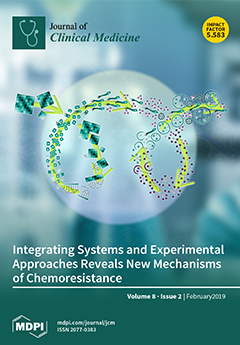
Efficacy of Omega-3 Intake in Managing Dry Eye Disease: A Systematic Review and Meta-Analysis of Randomized Controlled Trials
2023 Nov 10 Journal of Clinical Medicine Wang WX, Ko ML
Meta-Analysis Systematic Review Omega-3 Fatty Acids Eicosapentaenoic Acid Dry EyeOmega-3 fatty acid supplements can effectively alleviate symptoms of dry eye disease, especially when consumed in high doses for a long term and with high eicosapentaenoic acid levels.
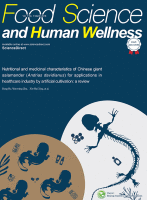
Polyphenols and pectin enriched golden kiwifruit (Actinidia chinensis) alleviates high fructose-induced glucolipid disorders and hepatic oxidative damage in rats: in association with improvement of fatty acids metabolism
2023 Sep Food Science and Human Wellness Alim A, Li T, Nisar T, Ali Z, Ren D, Liu Y, et al.
Overall, fleshes with pericarps from two A. chinensis (ACFP) employs more efficacious protective effects against HF-induced metabolic disorders and liver damage than pericarps from two A. chinensis (ACP) and pericarps from two A. chinensis (ACP).
Animal Study High Fructose Corn Syrup Kiwifruit
Significance of long-chain polyunsaturated fatty acids (PUFAs) for the development and behaviour of children
2023 Aug 12 European Journal of Pediatrics Schuchardt JP, Huss M, Stauss-Grabo M, Hahn A
Polyunsaturated fatty acids are of central importance for the development and functioning of the brain and nervous system, especially during childhood development. An adequate supply of long-chain ω-3 fatty acids, such as EPA and DHA in particular, is therefore indispensable for normal brain development during foetal growth in the cerebralisation phase, as well as for visual and cognitive functions in neonates.
Review Article Polyunsaturated Fatty Acids
Nutrition and its role in prevention and management of rheumatoid arthritis
2023 Jul Autoimmunity Reviews Nikiphorou E, Philippou E
Review Article Mediterranean Diet Sardine Omega-3 Fatty AcidsNutrition, particularly an anti-inflammatory Mediterranean diet supplemented with oily fish and omega-3 supplements, can potentially reduce inflammation and improve symptoms of rheumatoid arthritis.
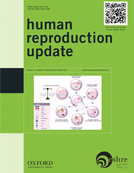
Assessing the influence of preconception diet on female fertility: a systematic scoping review of observational studies
2023 Jul 19 Human Reproduction Update Alesi S, Habibi N, Silva TR, Cheung N, Torkel S, Tay CT, et al.
Review Article Female Fertility Saturated Fats Trans Fats Mediterranean DietThe Mediterranean diet and reduced intake of trans fatty acids, saturated fatty acids, and discretionary foods like fast food and sugar-sweetened beverages may improve fertility rates.
Research insights are moderated by the Research Hub team and offer an at-a-glance overview of interesting research findings.

2023 Journal of Clinical Medicine
Omega-3 fatty acid supplements can effectively alleviate symptoms of dry eye disease, especially when consumed in high doses for a long term and with high eicosapentaenoic acid levels.
Meta-Analysis Dry Eye Eicosapentaenoic Acid Omega-3 Fatty Acids
Efficacy of Omega-3 Intake in Managing Dry Eye Disease: A Systematic Review and Meta-Analysis of Randomized Controlled Trials
Wang WX, Ko ML

2023 Human Reproduction Update
The Mediterranean diet and reduced intake of trans fatty acids, saturated fatty acids, and discretionary foods like fast food and sugar-sweetened beverages may improve fertility rates.
Review Article Female Fertility Mediterranean Diet Saturated Fats Trans Fats
Assessing the influence of preconception diet on female fertility: a systematic scoping review of observational studies
Alesi S, Habibi N, Silva TR, Cheung N, Torkel S, Tay CT, et al.

2023 Autoimmunity Reviews
Nutrition, particularly an anti-inflammatory Mediterranean diet supplemented with oily fish and omega-3 supplements, can potentially reduce inflammation and improve symptoms of rheumatoid arthritis.
Review Article Mediterranean Diet Omega-3 Fatty Acids Sardine
Nutrition and its role in prevention and management of rheumatoid arthritis
Nikiphorou E, Philippou E
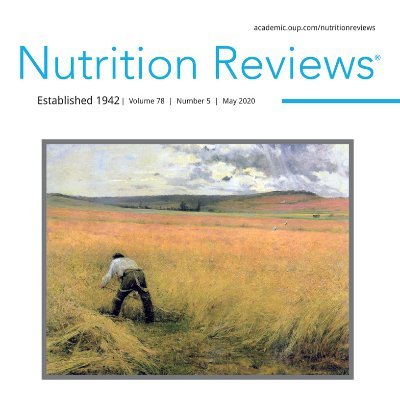
2023 Nutrition Reviews
Berry fruits such as blueberries, cranberries, raspberries, and strawberries could potentially improve gut microbiota and reverse dysbiosis in chronic kidney disease patients.
Review Article Blueberry Chronic Kidney Disease Cranberry Gut Microbiota Raspberry
Blueberry, cranberry, raspberry, and strawberry as modulators of the gut microbiota: target for treatment of gut dysbiosis in chronic kidney disease? From current evidence to future possibilities
Coutinho-Wolino KS, Melo MFS, Mota JC, Mafra D, Guimarães JT, Stockler-Pinto MB

2023 Frontiers in Nutrition
Sardines, being an affordable source of Omega-3 and other cardioprotective nutrients, can potentially reduce the need for Omega-3 supplementation and manage cardiometabolic diseases.
Review Article Cardiovascular Disease Cholesterol High Blood Pressure Metabolic Syndrome Omega-3 Fatty Acids
Eating more sardines instead of fish oil supplementation: Beyond omega-3 polyunsaturated fatty acids, a matrix of nutrients with cardiovascular benefits
Santos HO, May TL, Bueno AA
Review Articles
Review articles summarise and critically evaluate the current state of research on a specific topic or field by synthesising multiple primary research studies.

Efficacy of Omega-3 Intake in Managing Dry Eye Disease: A Systematic Review and Meta-Analysis of Randomized Controlled Trials
2023 Nov 10 Journal of Clinical Medicine Wang WX, Ko ML
Meta-Analysis Systematic Review Omega-3 Fatty Acids Eicosapentaenoic Acid Dry EyeOmega-3 fatty acid supplements can effectively alleviate symptoms of dry eye disease, especially when consumed in high doses for a long term and with high eicosapentaenoic acid levels.

Significance of long-chain polyunsaturated fatty acids (PUFAs) for the development and behaviour of children
2023 Aug 12 European Journal of Pediatrics Schuchardt JP, Huss M, Stauss-Grabo M, Hahn A
Polyunsaturated fatty acids are of central importance for the development and functioning of the brain and nervous system, especially during childhood development. An adequate supply of long-chain ω-3 fatty acids, such as EPA and DHA in particular, is therefore indispensable for normal brain development during foetal growth in the cerebralisation phase, as well as for visual and cognitive functions in neonates.
Review Article Polyunsaturated Fatty Acids
Nutrition and its role in prevention and management of rheumatoid arthritis
2023 Jul Autoimmunity Reviews Nikiphorou E, Philippou E
Review Article Mediterranean Diet Sardine Omega-3 Fatty AcidsNutrition, particularly an anti-inflammatory Mediterranean diet supplemented with oily fish and omega-3 supplements, can potentially reduce inflammation and improve symptoms of rheumatoid arthritis.

Assessing the influence of preconception diet on female fertility: a systematic scoping review of observational studies
2023 Jul 19 Human Reproduction Update Alesi S, Habibi N, Silva TR, Cheung N, Torkel S, Tay CT, et al.
Review Article Female Fertility Saturated Fats Trans Fats Mediterranean DietThe Mediterranean diet and reduced intake of trans fatty acids, saturated fatty acids, and discretionary foods like fast food and sugar-sweetened beverages may improve fertility rates.

Blueberry, cranberry, raspberry, and strawberry as modulators of the gut microbiota: target for treatment of gut dysbiosis in chronic kidney disease? From current evidence to future possibilities
2023 May 10 Nutrition Reviews Coutinho-Wolino KS, Melo MFS, Mota JC, Mafra D, Guimarães JT, Stockler-Pinto MB
Review Article Gut Microbiota Chronic Kidney Disease Strawberry Raspberry Blueberry CranberryBerry fruits such as blueberries, cranberries, raspberries, and strawberries could potentially improve gut microbiota and reverse dysbiosis in chronic kidney disease patients.
Clinical Trials
Clinical trials are research studies that involve people and are conducted to evaluate the safety and efficacy of new treatments or interventions, such as drugs, medical devices, or behavioural therapies.

Effectiveness of a Novel ω-3 Krill Oil Agent in Patients With Severe Hypertriglyceridemia
2022 Jan 06 JAMA Network Open Mozaffarian D, Maki KC, Bays HE, Aguilera F, Gould G, Hegele RA, et al.
his study found that ω-3 –PL/FFA, a novel krill oil–derived ω-3 formulation, reduced TG levels and was safe and well tolerated in patients with severe hypertriglyceridemia.
Randomised Controlled Trial Triglyceride Omega-3 Fatty Acids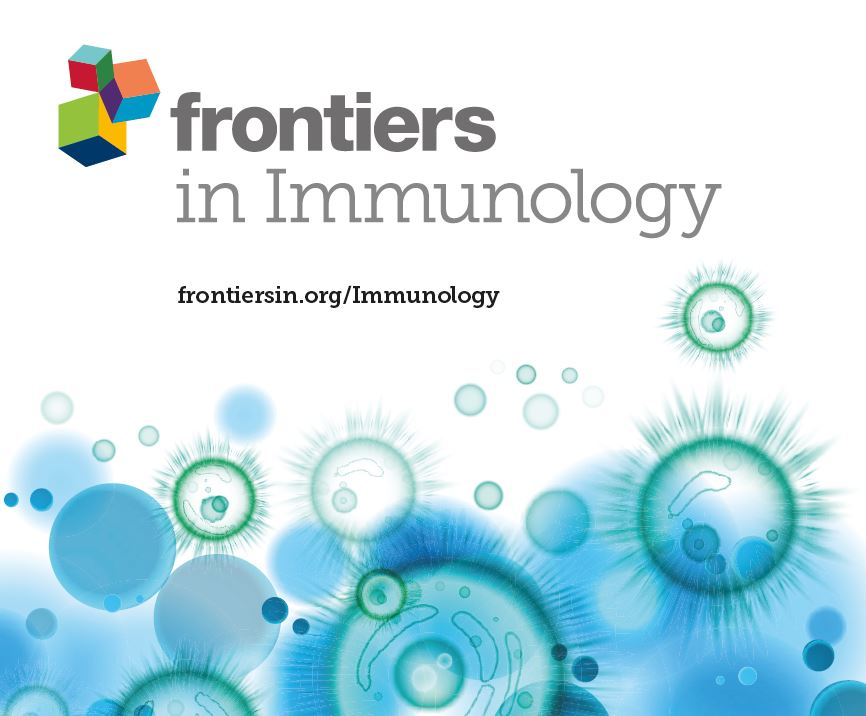
The Prebiotic Effects of Oats on Blood Lipids, Gut Microbiota, and Short-Chain Fatty Acids in Mildly Hypercholesterolemic Subjects Compared With Rice: A Randomized, Controlled Trial
2021 Dec 09 Frontiers in Immunology Xu D, Feng M, Chu YF, Wang S, Shete V, Tuohy KM, et al.
Experimental Study Randomised Controlled Trial Oats Cholesterol Gut MicrobiotaConsuming oats significantly lessens total and LDL cholesterol levels and mediates a prebiotic effect on the gut microbiome, contributing to its cholesterol-lowering ability.
Omega-3 fatty-acids modulate symptoms of depressive disorder, serum levels of omega-3 fatty acids and omega-6/omega-3 ratio in children. A randomized, double-blind and controlled trial
2020 May Psychiatry Research Trebatická J, Hradečná Z, Surovcová A, Katrenčíková B, Gushina I, Waczulíková I, et al.
The study concluded that an omega-3 fatty acid fish oil emulsion showed significant reductions in depressive symptoms and a decrease in omega-6/omega-3 ratio in the treatment group compared to the control group.
Clinical Study Randomised Controlled Trial Children's Health Depression Omega-6 Omega-3 Ratio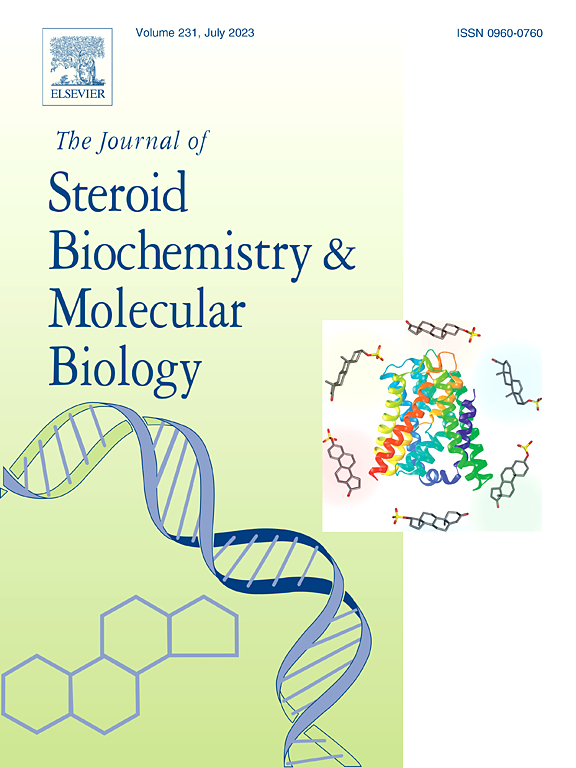
A randomised controlled trial of vitamin D and omega-3 long chain polyunsaturated fatty acids in the treatment of irritability and hyperactivity among children with autism spectrum disorder
2019 Mar The Journal of Steroid Biochemistry and Molecular Biology Mazahery H, Conlon CA, Beck KL, Mugridge O, Kruger MC, Stonehouse W, et al.
The results indicate that vitamin D and omega-3 LCPUFA reduced irritability symptoms in children with ASD. Vitamin D also reduced hyperactivity symptoms in these children.
Randomised Controlled Trial Vitamin D Omega-3 Fatty AcidsStudy Protocols
Published study protocols are detailed plans that outline the objectives, methodology, statistical analyses, and organisation of a research study that have been made publicly available for others to review and use as a reference.
Presentation Slides

Meta-Analysis
Omega-3 fatty acid supplements can effectively alleviate symptoms of dry eye disease, especially when consumed in high doses for a long term and with high eicosapentaenoic acid levels.
Wang WX, Ko ML

Review Article
The Mediterranean diet and reduced intake of trans fatty acids, saturated fatty acids, and discretionary foods like fast food and sugar-sweetened beverages may improve fertility rates.
Alesi S, Habibi N, Silva TR, Cheung N, Torkel S, Tay CT, Quinteros A, Winter H, Teede H, Mousa A, Grieger JA, Moran LJ

Review Article
Nutrition, particularly an anti-inflammatory Mediterranean diet supplemented with oily fish and omega-3 supplements, can potentially reduce inflammation and improve symptoms of rheumatoid arthritis.
Nikiphorou E, Philippou E

Review Article
Berry fruits such as blueberries, cranberries, raspberries, and strawberries could potentially improve gut microbiota and reverse dysbiosis in chronic kidney disease patients.
Coutinho-Wolino KS, Melo MFS, Mota JC, Mafra D, Guimarães JT, Stockler-Pinto MB

Review Article
Sardines, being an affordable source of Omega-3 and other cardioprotective nutrients, can potentially reduce the need for Omega-3 supplementation and manage cardiometabolic diseases.
Santos HO, May TL, Bueno AA
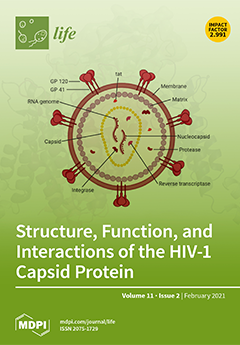
Cohort Study
Monounsaturated fats, omega-3 polyunsaturated fatty acids, and a suitable eicosapentaenoic acid to arachidonic acid ratio can be used in diet therapy to improve quality of life by reducing pain and inflammation.
Marcinkowska A, Górnicka M

Systematic Review
Higher consumption of dairy foods relates to a decreased risk of endometriosis, while increased intake of red meat and certain fats elevates the risk.
Arab A, Karimi E, Vingrys K, Kelishadi MR, Mehrabani S, Askari G
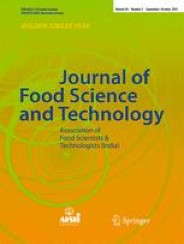
Experimental Study
Using grape seed oil in the sardine canning process enhances the lipid nutritional quality and increases the fat, protein, and ash contents.
Bouriga N, Rjiba Bahri W, Mili S, Massoudi S, Quignard JP, Trabelsi M
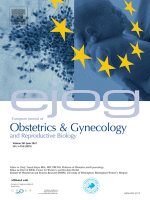
Systematic Review
Increased intake of omega-3 can enhance the quality of oocyte and embryo, thereby potentially improving the success rate of assisted reproductive techniques.
Abodi M, De Cosmi V, Parazzini F, Agostoni C

Review Article
Pumpkin seed oil, with its phytochemical content, shows beneficial properties against cardiovascular problems in menopausal women and hormone imbalances.
Šamec D, Loizzo MR, Gortzi O, Çankaya T, Tundis R, Suntar , Shirooie S, Zengin G, Devkota HP, Reboredo‐Rodríguez P, Hassan STS, Manayi A, Kashani HRK, Nabavi SM
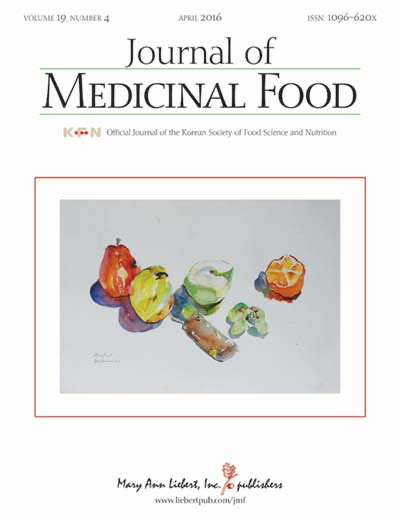
Review Article
Omega-3 fatty acids can help prevent and manage chronic inflammatory diseases, including ulcerative colitis and rheumatoid arthritis, through influencing gut microbiota.
Zorgetto-Pinheiro VA, Machate DJ, Figueiredo PS, Marcelino G, Hiane PA, Pott A, Guimarães RCA, Bogo D

Experimental Study
The Chaihu Shugan Formula, a traditional Chinese medicine, not only effectively modulates intestinal gut microbiota but also strengthens gut barrier integrity and contains powerful anti-inflammatory properties.
Liu L, Lu Y, Xu C, Chen H, Wang X, Wang Y, Cai B, Li B, Verstrepen L, Ghyselinck J, Marzorati M, Yao Q

Cohort Study
Vitamin D and Omega 3 fatty acids supplementation appears to reduce the risk of autoimmune diseases.
Hahn J, Cook NR, Alexander EK, Friedman S, Walter J, Bubes V, Kotler G, Lee IM, Manson JAE, Costenbader KH

Cohort Study
Increased plasma omega-3 levels, which are associated with genetically higher intake of omega-3, contribute to a higher risk of rheumatoid arthritis among people of European ancestry.
Zhu G, Zhou S, Xu Y, Gao R, Li H, Zhai B, Liu X, He Y, Wang X, Han G, Su W, Wang R

Experimental Study
Consuming oats significantly lessens total and LDL cholesterol levels and mediates a prebiotic effect on the gut microbiome, contributing to its cholesterol-lowering ability.
Xu D, Feng M, Chu YF, Wang S, Shete V, Tuohy KM, Liu F, Zhou X, Kamil A, Pan D, Liu H, Yang X, Yang C, Zhu B, Lv N, Xiong Q, Wang X, Sun J, Sun G, Yang Y
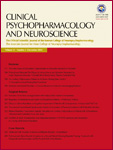
Review Article
Omega-3 polyunsaturated fatty acids supplementation during the prenatal and perinatal period could have a protective effect on neurodevelopmental disorders including ADHD, ASD, and MDD in youth.
Chang JPC, Su KP

Review Article
Pumpkin seeds carry bioactive compounds with antidiabetic, antidepressant, antioxidant, antitumor, and cytoprotective activities, also aiding in microbiological infections and specific organ disorders.
Dotto JM, Chacha JS

Systematic Review
High doses of omega-3 fatty acids, Vitamin D supplementation, and dietary sodium restriction showed significant improvement in reducing rheumatoid arthritis symptoms.
Philippou E, Petersson SD, Rodomar C, Nikiphorou E

Experimental Study
Unpasteurised milk and dairy products intake could potentially alter gut microbiome composition which may influence psychological functioning.
Butler MI, Bastiaanssen TFS, Long-Smith C, Berding K, Morkl S, Cusack AM, Strain C, Busca K, Porteous-Allen P, Claesson MJ, Stanton C, Cryan JF, Allen D, Dinan TG

Review Article
Omega 3 fatty acids can counter muscle lipotoxicity and prevent comorbidities in patients with rheumatoid arthritis, supporting muscle health and reducing cardiometabolic disease risk.
Lanchais K, Capel F, Tournadre A

Review Article
Omega-3 fatty acids, essential for human health, can reduce inflammation and may mitigate symptoms in rheumatoid arthritis, particularly joint swelling and tenderness.
Kostoglou-Athanassiou I, Athanassiou L, Athanassiou P

Meta-Analysis
Polyunsaturated fatty acids treatment shows improved outcomes for patients with nonspecific typical dry eye disease, in particular as a short-term intervention.
Chi SC, Tuan HI, Kang YN

Systematic Review
Consumption of virgin avocado oil, rich in monounsaturated fatty acids and bioactive components, may help manage chronic diseases like hypertension, diabetes, and lower cardiometabolic risk.
Tan CX
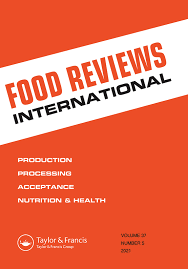
Review Article
Pumpkin seed oil appears effective for improving men's health conditions such as enlarged prostate, overactive bladder, and hair loss due to its anti-inflammatory properties and radical scavenging.
Ramak P, Mahboubi M
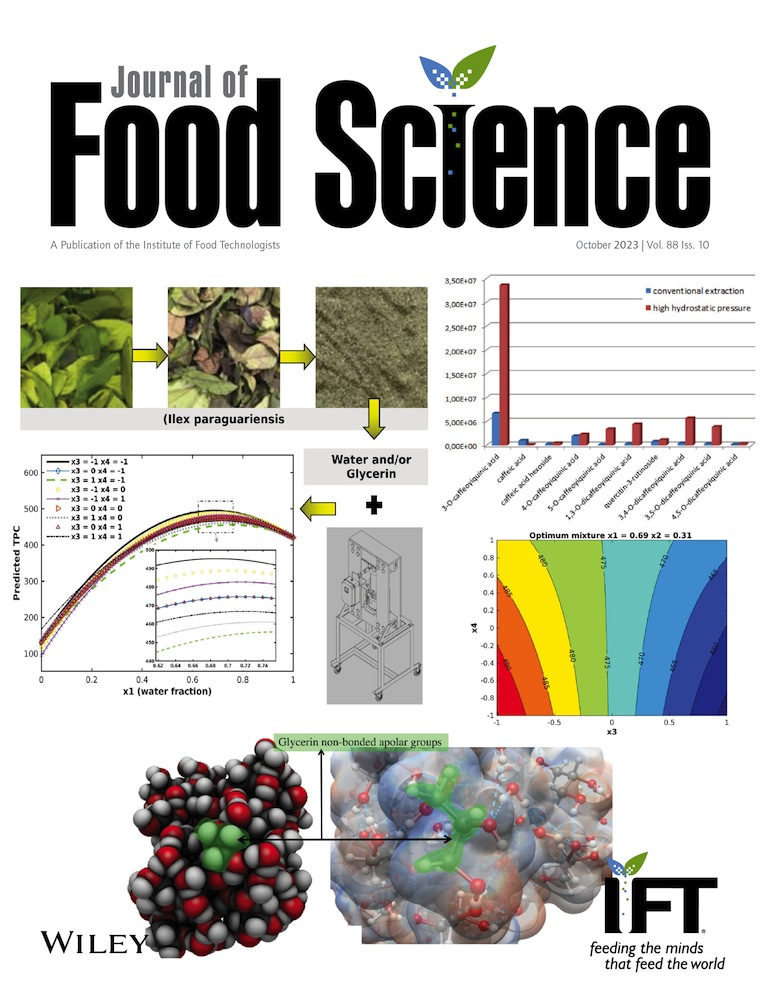
Clinical Study
Adding fresh herbs like parsley and chives to air-fried sardines reduces the levels of harmful cholesterol oxidation products formed during cooking.
Ferreira FS, Sampaio GR, Keller LM, Sawaya ACHF, Chávez DWH, Torres EAFS, Saldanha T

Practice Guideline
Long-chain omega-3 polyunsaturated fatty acids have various health benefits for postmenopausal women including reducing triglycerides and improving depression and psychotic symptoms.
Sánchez-Borrego R, von Schacky C, Osorio MJA, Llaneza P, Pinto X, Losa F, Navarro MC, Lubián D, Mendoza N

Systematic Review
Avocado, with its lipid-lowering, antihypertensive, antidiabetic, anti-obesity, and cardioprotective effects, can potentially manage metabolic syndrome more efficaciously than synthetic treatment options.
Tabeshpour J, Razavi BM, Hosseinzadeh H

Review Article
Serotonin function, influenced by vitamin D and omega-3 fatty acids, plays a critical role in neuropsychiatric disorders and certain behavioral functions.
Patrick RP, Ames BN
Executive Summary
Write an executive summary in the form of a blog article on the topic of "Research into Chinese medicine treatment for Fatty Acids" summarising the research below and using language that can be easily understood by patients and avoiding medical jargon using a professional and caring tone of voice.
Write an executive summary in the form of a blog article on the topic of "Researched Chinese medicine treatments for Fatty Acids" summarising the research below in an objective and easy to understand way, and using language that can be easily understood by patients. Group the article into Chinese medicine treatments first, followed by nutrition and other treatments. Avoid using medical jargon and use a professional and caring tone of voice.
Write me a concise but easy to understand executive summary on the topic of "Chinese medicine treatments for Fatty Acids" based on the following research that I will give you. Your summary should be 2 paragraphs long in Australian English spelling and include references to the studies.
A Meta-Analysis published in 2023 in the journal Journal of Clinical Medicine found that Omega-3 fatty acid supplements can effectively alleviate symptoms of dry eye disease, especially when consumed in high doses for a long term and with high eicosapentaenoic acid levels. The methodology of this study involved an intensive review of data from multiple reliable sources like PubMed, Embase, and others covering the timespan from 2013 to 2023. The focus was on randomized clinical trials that studied the impact of omega-3 fatty acids on patients with dry eye disease and provided accessible pre- and post-intervention data. Studies with overlapping participants were excluded, as were studies without omega-3 supplementation or not featuring a placebo control or quantitative assessments. Independent reviewers extracted data pertaining to dry eye symptom scores and other related metrics. The results showed that patients who were administered omega-3 treatment demonstrated considerable improvement in symptoms of dry eye disease compared to those on a placebo treatment. The meta-regression analysis deduced positive correlations between the daily dose of omega-3, duration of omega-3 intake, and percentage of eicosapentaenoic acid, with a reduction in dry eye symptom scores. Similar trends were observed with other dry eye related metrics. These findings provide substantial evidence on the beneficial effect of omega-3 fatty acid supplements in managing dry eye disease. However, due to the diversity in patient characteristics and the heterogeneity in study results, care should be taken in widely applying these findings.
A Review Article published in 2023 in the journal Human Reproduction Update found that The Mediterranean diet and reduced intake of trans fatty acids, saturated fatty acids, and discretionary foods like fast food and sugar-sweetened beverages may improve fertility rates. This title represents a systematic scoping review of four electronic databases, namely Medline and EMBASE via Ovid Processing, CAB Direct, and CINAHL via EBSCO. The researchers included observational works, consisting of prospective and retrospective cohort, cross-sectional, and case-control studies, up to September 27, 2021. The criteria for study inclusion were women of reproductive age in the preconception stage who were examined for the connection between preconception diet and fertility outcomes. From the total of 36 studies that were found eligible for review, the one diet that stood out with the most significant and consistent association with increased clinical pregnancy rates was the Mediterranean diet. Dietary factors such as reducing trans fatty acids, saturated fatty acids, and discretionary food intake, which includes fast food and sugar-rich drinks, were found to lead to an improvement in live birth, clinical pregnancy rates, and associated ART outcomes. However, this study also found that elements like seafood, dairy, and soy showed varying findings across a few studies. Despite the mixed results, it was noted that following some of these dietary regulations, notably Mediterranean diet, shows consistency with healthy eating guidelines, implying potential benefits in fertility.
A Review Article published in 2023 in the journal Autoimmunity Reviews found that Nutrition, particularly an anti-inflammatory Mediterranean diet supplemented with oily fish and omega-3 supplements, can potentially reduce inflammation and improve symptoms of rheumatoid arthritis. The review examines evidence indicating a possible connection between nutrition and the risk and management of rheumatoid arthritis, an autoimmune disease having an immune-inflammatory response. The impact of different food types was considered, including pro-inflammatory and anti-inflammatory foods. Specifically, the research highlights the effectiveness of a Mediterranean diet, rich in fish and supplemented with omega-3 polyunsaturated fatty acids, in reducing inflammation and oxidation. Other factors such as herbs and spices, beverages, vitamin D, and probiotics were also taken into account. The research emphasizes the direct and indirect role of nutrition through the management of co-morbidity. The disease activity was observed to improve with dietary changes, particularly a propensity to reduce inflammation, oxidation, and beneficial effects on gut microbiota. An anti-inflammatory Mediterranean diet, supplemented with consumption of oily fish at least twice a week, and daily intake of omega-3 polyunsaturated fatty acid supplements of 2 g, has been recommended. The study also highlights the importance of rheumatologists working closely with registered dietitians to support patients in managing a well-balanced diet according to their individual needs.
A Review Article published in 2023 in the journal Nutrition Reviews found that Berry fruits such as blueberries, cranberries, raspberries, and strawberries could potentially improve gut microbiota and reverse dysbiosis in chronic kidney disease patients. Methodology: This research explores the therapeutic potential of berry fruits, including blueberries, cranberries, raspberries, and strawberries, in relation to modulating gut microbiota in chronic kidney disease (CKD) patients. The fruit’s rich polyphenol and nutrient content are assumed to promote the selective growth of beneficial bacteria, thus improving the clinical status of these patients. The study scrutinizes the impact on the abundance of mucus-producing bacteria and short-chain fatty acids specifically. Discussion of Results: The gathered evidence illustrates that berry fruits, particularly with a daily intake of 5 mg, can promote diversity in the gut microbiota and possibly reverse dysbiosis, a common issue in chronic kidney disease patients. These fruits are found to increase the expression of mRNA involved in gut tight junctions such as occludin, TJP1, and mucin, and they may reduce uremic toxins by controlling the gut microbiota, improving the uremic condition. As such, long-term use of berry fruits could be an effective strategy for CKD patients.
A Review Article published in 2023 in the journal Frontiers in Nutrition found that Sardines, being an affordable source of Omega-3 and other cardioprotective nutrients, can potentially reduce the need for Omega-3 supplementation and manage cardiometabolic diseases. The abstract primarily acknowledges the importance of Omega-3 polyunsaturated fatty acids with respect to managing diseases related to heart health and metabolism, for instance, type 2 diabetes, hypertension, hypertriglyceridaemia, and fatty liver disease. However, these fatty acids are not the sole beneficial component of sardines. Minerals including but not limited to calcium, potassium, and magnesium as well as substances like taurine and arginine found in sardines have a significant role in controlling mild inflammation and oxidative stress which are usually present in cardiovascular diseases and hemodynamic dysfunction. The results discussed in the abstract suggest a positive correlation between consumption of sardines and potential cardiometabolic benefits. By considering the dose-response relationship effects, a pragmatic approach towards consumption of nutrients was suggested. The intake of sardines was seen not only as a means of Omega-3 supplementation but also as a comprehensive approach to enhancing cardiovascular health. The abstract concludes with an emphasis on the many beneficial nutrients found in sardines besides Omega-3, underlining the need to shift the focus from synthetic supplementation to natural dietary improvement.
A Cohort Study published in 2023 in the journal Life found that Monounsaturated fats, omega-3 polyunsaturated fatty acids, and a suitable eicosapentaenoic acid to arachidonic acid ratio can be used in diet therapy to improve quality of life by reducing pain and inflammation. The risk of endometriosis may increase with a higher consumption of products rich in saturated fats, especially palmitic acid and trans-unsaturated fatty acids. Monounsaturated fats and omega-3 polyunsaturated fatty acids may likely be connected with a lower risk of developing endometriosis and with reductions in the severity of disease.
A Systematic Review published in 2022 in the journal Nutrition Journal found that Higher consumption of dairy foods relates to a decreased risk of endometriosis, while increased intake of red meat and certain fats elevates the risk. The study is a systematic review and meta-analysis of observational studies, evaluating the relationship between dietary intakes of specific food groups (dairy, fats, fruits, vegetables, legumes, and meat) and endometriosis risk. The databases PubMed, Scopus, and ISI Web of Science were systematically searched until September 2022 to collect data. To measure the effect size and corresponding confidence intervals, the inverse variance-weighted fixed-effect method was used. There were eight publications included in this study, ranging from a sample size of 156 to 116,607, comprising five cohorts and three case-control studies. The results indicated a link between the risk of endometriosis and dietary intake. A higher intake of total dairy products was associated with a decreased risk, but there was no such association found with either low or high-fat dairy, cheese or milk. Conversely, a higher consumption of red meat, trans fatty acids, and saturated fatty acids showed an association with an increased risk of endometriosis. The results highlight differing associations between dietary practices and endometriosis risk, hinting at the role of diet in the incidence and progression of the condition.
A Experimental Study published in 2022 in the journal Journal of Food Science and Technology found that Using grape seed oil in the sardine canning process enhances the lipid nutritional quality and increases the fat, protein, and ash contents. The researchers employed grape seed oil (GSO) in the canning process of sardines, comparing its effects on the nutritional quality of the canned fish to that of the traditional olive oil (OO). The assessment focused on the quantities of polyphenols, flavonoids, and non flavonoids present in both the GSO and OO, while also considering the levels of polyunsaturated fatty acids (PUFA) specifically linoleic acid in the GSO. The fat, protein, and ash content in the canned sardines were also tracked over a period of 90 days. In the results discussion, it was observed that GSO contained significantly higher levels of polyphenols, flavonoids, and non flavonoids than OO. Additionally, GSO was rich in PUFA, particularly linoleic acid. Following the canning process, canned sardines preserved using GSO demonstrated a significant increase in protein, fat, and ash content. Notably, the use of both GSO and OO resulted in a decrease in both atherogenic and thrombogenic indices to less than 1, implying improved lipid nutritional quality. Critically, levels of thiobarbituric acid and Total volatile base nitrogen remained below critical limits.
A Systematic Review published in 2022 in the journal European Journal of Obstetrics & Gynecology and Reproductive Biology found that Increased intake of omega-3 can enhance the quality of oocyte and embryo, thereby potentially improving the success rate of assisted reproductive techniques. The systematic review was conducted adhering to the PRISMA 2020 statement and the procedure was registered with PROSPERO. Women who were undergoing assisted reproductive techniques such as in vitro fertilisation or intracytoplasmic sperm injection, and whose diets were evaluated for omega-3 intake, were the focal point. The analysis looked at women who had an increased omega-3 intake compared to women undergoing the same procedures without an increased omega-3 intake prior to the cycle. A wide range of literature was reviewed, selecting five relevant studies which consisted a large number of records. The results of these five studies show a beneficial effect of omega-3 fats on the success rate of assisted reproductive outcomes. This is primarily illustrated by an increase in the quality of both the oocyte and the embryo, recognised through enhanced morphological and morphokinetic parameters. While the studies viewed varied in specifics, all pointed to the optimistic impact of increasing omega-3 intake in women seeking pregnancy through assisted methods.
A Review Article published in 2022 in the journal Comprehensive Reviews in Food Science and Food Safety found that Pumpkin seed oil, with its phytochemical content, shows beneficial properties against cardiovascular problems in menopausal women and hormone imbalances. The study focused on gathering scientific information that highlights the potential of pumpkin seed oil as a health-benefiting food ingredient. Its focus is on the oil’s chemical composition, phytochemical content, biological activity, safety measures alongside the various production processes. The researchers examined major phytochemicals found in the oil, including polyphenols, phytoestrogens, and fatty acids, while also noting the potential health benefits of carotenoids, squalene, tocopherols, and minerals present in it. In terms of methodology, most studies within this review were conducted in vitro to validate the oil's antioxidant and antimicrobial activities. Furthermore, there were clinical studies undertaken specifically to observe the effect of the oil in addressing cardiovascular challenges in menopausal women and conditions related to sex hormone imbalances. The comprehensive overview covers a wide array of data on the composition and potential uses of pumpkin seed oil.
A Review Article published in 2022 in the journal Journal of Medicinal Food found that Omega-3 fatty acids can help prevent and manage chronic inflammatory diseases, including ulcerative colitis and rheumatoid arthritis, through influencing gut microbiota. The study primarily encompasses a review of both experimental and clinical studies on the influence of omega-3 fatty acids on chronic inflammatory conditions, with the attention being specifically focused on those diseases with an autoimmune background. The study highlights the role of these fatty acids in maintaining bodily homeostasis, as well as the enzymatic processes they trigger within the body upon ingestion. Natural sources of omega-3 are also explored, emphasizing the importance of maintaining a healthy and balanced diet. In their exploration of omega-3's impact on inflammatory conditions, the researchers revisit the pathogenesis of ulcerative colitis and rheumatoid arthritis under the theoretical approach of gut microbiota dysbiosis. This approach emphasizes the role of the gut in maintaining health and identifies how imbalances can contribute to the development and persistence of these conditions. The researchers propose that omega-3 fatty acids are able to prevent and control these conditions, which are significant contributors to global chronic health burden and can lead to severe complications and disabilities if not treated. The potential of omega-3's to prevent severe illness in cases of COVID-19 infection through immune system modulation and control of the inflammatory process is also briefly explored.
A Experimental Study published in 2022 in the journal Frontiers in Pharmacology found that The Chaihu Shugan Formula, a traditional Chinese medicine, not only effectively modulates intestinal gut microbiota but also strengthens gut barrier integrity and contains powerful anti-inflammatory properties. The study began by analysing the impact of the Chaihu Shugan Formula (CSF) on the simulated colonic microbiota of five healthy donors, while concurrently examining gut barrier integrity, and intestinal immunity. This was achieved by marrying the use of the simulator of the human intestinal microbial ecosystem technology platform with the co-culture of intestinal and immune cells. The examination revealed an increase in the production of certain healthy short-chain fatty acids, a boost in health-promoting Bifidobacterium species, and a decrease in certain pathogenic branching short-chain fatty acids. The proceeding phase of the study investigated the influence of colonic fermentation of CSF on gut barrier and intestinal immunity utilizing the Caco-2/THP1-blue™ cell co-culture model. The research demonstrated that CSF induces protective effects on inflammation-induced intestinal epithelial barrier disruption. Concurrently, the study benignly revealed the treatment of CSF unfailingly unveiling pronounced anti-inflammatory properties induced by the stimulation of anti-inflammatory cytokines IL-6 and IL-10 and the reduction of the pro-inflammatory cytokine TNF-α.
A Cohort Study published in 2022 in the journal BMJ Open found that Vitamin D and Omega 3 fatty acids supplementation appears to reduce the risk of autoimmune diseases. In this nationwide, double-blind, randomized, controlled trial, 25,871 male and female participants over the ages of 50 and 55 respectively, were given either Vitamin D (2000 IU/day), Omega 3 fatty acids (1000 mg/day), both, or a placebo. Over the median follow-up period of 5.3 years, participants self-reported cases of autoimmune diseases, and these were verified by thorough medical record review. In the discussion of results, it was found that Vitamin D supplementation, regardless of the presence of Omega 3, seemed to reduce the occurrence of autoimmune diseases by 22%. Meanwhile, Omega 3 supplementation alone didn't show a statistically significant reduction in autoimmune diseases, but it did show a larger effect in reducing autoimmune diseases than the reference arm (that received placebo for both Vitamin D and Omega 3).
A Cohort Study published in 2022 in the journal Clinical Rheumatology found that Increased plasma omega-3 levels, which are associated with genetically higher intake of omega-3, contribute to a higher risk of rheumatoid arthritis among people of European ancestry. Methodology: The researchers have used an extensive set of data from the largest Genome-Wide Association Study (GWAS) which focuses on the correlation between omega-3 fatty acids and rheumatoid arthritis. They used information from a total of 114,999 individuals with European ancestry for the omega-3 study and 14,361 cases along with 43,923 controls of European ancestry for the rheumatoid arthritis study. By employing various methodological tests such as Mendelian randomization-egger_intercept, MR-PRESSO, and Cochran's Q test, they assessed the role of pleiotropy and heterogeneity in the relationship between omega-3 and rheumatoid arthritis. Discussion of Results: Results reveal no significant bias, pleiotropy, or heterogeneity among the omega-3 genetic instrumental variables in rheumatoid arthritis datasets. However, as the Mendelian randomization analysis indicated a causal link, the study provides the inference that with the genetic increase of omega-3 levels, the risk of rheumatoid arthritis also increases, particularly among individuals of European descent. Therefore, it suggests that the reduction in the intake of omega-3 could potentially reduce the risk of rheumatoid arthritis in this population.
A Experimental Study published in 2021 in the journal Frontiers in Immunology found that Consuming oats significantly lessens total and LDL cholesterol levels and mediates a prebiotic effect on the gut microbiome, contributing to its cholesterol-lowering ability. In a randomized controlled study, 210 mildly hypercholesterolemic subjects from three various study centers across China were assigned to consume either 80 g of oats or rice daily for 45 days. To ascertain the effects of these diets, measurements were taken of the participants' plasma lipid profiles, short chain fatty acids (SCFAs), and fecal microbiota. Following 30 and 45 days of adherence to these diets, there was a pronounced reduction in total cholesterol (TC) and non-high-density lipoprotein cholesterol (non-HDL-C) in both the oat-consuming and rice-consuming participants. This decrease was more articulated amongst the oat consumers by the 45th day. The consumption of oats led to a significant increase in the abundance of certain beneficial gut microbiota and a corresponding decrease in unclassified harmful types. These microbiota demonstrated associations with changes in plasma lipid levels and SCFAs. The comprehensive findings strongly suggest that the cholesterol-reducing effect of oats may be largely down to its prebiotic activity, which modulates the gut microbiome.
A Review Article published in 2020 in the journal Clinical Psychopharmacology and Neuroscience found that Omega-3 polyunsaturated fatty acids supplementation during the prenatal and perinatal period could have a protective effect on neurodevelopmental disorders including ADHD, ASD, and MDD in youth. The research implemented supplementation of omega-3 polyunsaturated fatty acids also known as Omega-3 PUFAs, in different quantities and durations to youth with attention deficit hyperactivity disorder (ADHD), major depressive disorder (MDD) and autism spectrum disorder (ASD). This was carried out based on suggested dosage and duration from various randomized controlled trials and systemic literature reviews. It was observed that omega-3 PUFAs were essential nutrients not just for physical health but also for mental health, more so during the prenatal and perinatal stages of development. The results demonstrated that clinical symptoms improved in youth with ADHD, MDD and ASD after they were supplemented with Omega-3 PUFAs, especially in cases where there was high inflammation or low baseline Omega-3 index present. The research showed very promising evidence that Omega-3 PUFAs had positive effects on lethargy and hyperactivity symptoms in ASD. There was also an inclination that Omega-3 PUFAs levels and inflammation could be potential markers for treatment response in ADHD and MDD.
A Review Article published in 2020 in the journal Scientific African found that Pumpkin seeds carry bioactive compounds with antidiabetic, antidepressant, antioxidant, antitumor, and cytoprotective activities, also aiding in microbiological infections and specific organ disorders. The methodology utilised an in-depth literature review, compiling evidence-based data from various electronic databases such as ScienceDirect, ResearchGate, PubMed, Scopus and Google Scholar up until January 2020. The focus of the gathered literature was the potential use of pumpkin seeds as a functional food ingredient and assessing the associated biological mechanisms of the bioactive compounds within the seeds. Pumpkin seeds, despite being small, are rich in a wide variety of beneficial nutrients such as amino acids, phytosterols, unsaturated fatty acids, phenolic compounds, tocopherols, cucurbitacins and valuable minerals. The bioactive compounds found within these seeds have shown multiple promising activities. They possess anthelmintic, antidiabetic, antidepressant, antioxidant, antitumor and cytoprotective properties. Additionally, they demonstrate potentials for addressing microbiological infections and specific disorders related to liver and prostate. The compiled literature strongly suggests that pumpkin seeds can be used as both a traditional and functional food ingredient due to the wide array of health benefits they offer.
A Systematic Review published in 2020 in the journal Nutrition Reviews found that High doses of omega-3 fatty acids, Vitamin D supplementation, and dietary sodium restriction showed significant improvement in reducing rheumatoid arthritis symptoms. The study method involved conducting a systematic review, with all methods prespecified, in line with the Preferred Reporting Items for Systematic Reviews and Meta-Analyses guidelines. Relevant articles were found on Medline and Embase. Data were extracted from these articles by two independent reviewers, eventually identifying a total of 70 human studies that fit the scope of the research. The results indicated that the administration of omega-3 polyunsaturated fatty acids in high doses led to a decrease in rheumatoid arthritis disease activity, as well reduced failure rates of pharmacotherapy. Also, supplementing with Vitamin D and dietary sodium restriction had beneficial effects on some rheumatoid arthritis outcomes. Fasting resulted in significant but brief subjective improvements. Whilst the Mediterranean diet showed improvements in some rheumatoid arthritis disease activity measures, the results from vegetarian, elimination, peptide, or elemental diets implied that the responses are very individualized.
A Experimental Study published in 2020 in the journal Nutrients found that Unpasteurised milk and dairy products intake could potentially alter gut microbiome composition which may influence psychological functioning. In this observational study, the impact of dietary change involving unpasteurized dairy consumption on gut microbiota and psychological state was observed among participants of a 12-week residential cookery course on an organic farm. Twenty-four participants, who primarily consumed food from the farm including unpasteurised milk and dairy products, provided faecal samples at the beginning and end of the course. Concurrently, they completed self-report questionnaires touching on mood, anxiety, and sleep aspects and nutrient intake was monitored via a food frequency questionnaire. Gut microbiota analysis was carried out using 16S rRNA gene sequencing and measurement of faecal short chain fatty acids. Post-course, there was a significant growth in the relative abundance of a specific bacterial genus in the gut, associated with unpasteurised milk and dairy product intake. Furthermore, an increase in a particular faecal short chain fatty acid, valerate, was observed together with an elevation in the functional richness of the microbiome profile. The latter was determined by measuring the predicted neuroactive potential using a unique gut-brain module approach. Despite safety concerns, the consumption of unpasteurised milk and dairy products seemed to promote the growth of probiotic bacterial genus, known to be beneficial for various physical and mental health outcomes.
A Review Article published in 2020 in the journal Nutrients found that Omega 3 fatty acids can counter muscle lipotoxicity and prevent comorbidities in patients with rheumatoid arthritis, supporting muscle health and reducing cardiometabolic disease risk. The research explores the connection between Rheumatoid arthritis, a chronic inflammatory disease, and a set of comorbidities such as cardiovascular disorders, insulin resistance, metabolic syndrome, and sarcopenia, hypothesizing that these could possibly be associated with alterations in lipid metabolism. Patients with rheumatoid arthritis are observed to have lower cholesterol levels paradoxically coupled with an increased risk of cardiovascular disorders. The study also discusses the accumulation of toxic lipid mediators in skeletal muscles which can lead to mitochondrial dysfunctions and insulin resistance, both key factors of cardiovascular disorders and sarcopenia. Through multiple research studies, it was observed that Omega 3 fatty acids could potentially inhibit the development of rheumatoid arthritis and improve muscle metabolism, consequently reducing muscle atrophy in patients with obesity and insulin resistance. Thus, dietary supplementation with Omega 3 fatty acids was suggested as a promising strategy to limit the lipotoxicity in muscles and prevent associated health risks in patients dealing with rheumatoid arthritis.
A Review Article published in 2020 in the journal Mediterranean Journal of Rheumatology found that Omega-3 fatty acids, essential for human health, can reduce inflammation and may mitigate symptoms in rheumatoid arthritis, particularly joint swelling and tenderness. In this study, the focus was on omega-3 fatty acids, essential nutrients that humans need but can't produce themselves. These acids, usually obtained from diet, are already known to prevent coronary artery disease and stroke, and are integral to the development of the nervous system and the retina. The research then shifted towards their potential impacts on the immune system, as it was suspected that they could act as precursors to inflammatory mediators which can limit or moderate inflammation. Investigations revealed these fatty acids to potentially counteract cases of experimental arthritis, postulating a beneficial effect on rheumatoid arthritis. Through clinical studies, researchers found evidence of omega-3 fatty acids influencing disease activity, specifically reducing the number of swollen and tender joints in subjects.
A Meta-Analysis published in 2019 in the journal Nutrients found that Polyunsaturated fatty acids treatment shows improved outcomes for patients with nonspecific typical dry eye disease, in particular as a short-term intervention. In this research, randomized clinical trials were searched from various databases, which included Cochrane Library, EMBASE, PubMed, and Web of Science, all investigating the impact of polyunsaturated fatty acids (PUFAs) on patients with nonspecific typical dry eye disease. The trials were conducted until March 2019. A total of thirteen eligible clinical trials with 1782 patients were eventually included. Specific data points such as tear breakup time, Schirmer's test, osmolarity, and ocular surface disease index were extracted by two independent reviewers. A pairwise meta-analysis was undertaken using means and standard deviations under a random-effects model for various outcomes. This research demonstrated that patients who received treatment solely with PUFAs showed significant improvements in specific observations such as tear breakup time, Schirmer's test scores, osmolarity, and ocular surface disease index when compared with patients who only received a placebo. However, it was noted that the positive effects of PUFAs on tear breakup time and ocular surface disease index scores decreased as the duration of treatment increased. Despite this, PUFAs were found to be effective for treating nonspecific typical dry eye disease, especially as a short-term treatment option and displayed few adverse events. The study therefore concluded that PUFA supplements could be beneficial to patients with nonspecific typical dry eye disease who are not using other types of eye medication concurrently.
A Systematic Review published in 2019 in the journal Journal of Functional Foods found that Consumption of virgin avocado oil, rich in monounsaturated fatty acids and bioactive components, may help manage chronic diseases like hypertension, diabetes, and lower cardiometabolic risk. The research paper is a review that explores various extraction methods developed for producing virgin avocado oil (VAO) and the oil yields for these methods. It additionally details the physicochemical composition of VAO, focusing specifically on its high concentration of monounsaturated fatty acids and bioactive components, such as α-tocopherol and β-sitosterol. The results discussed indicate that VAO, which is mainly composed of oleic, palmitic, and linoleic acids, can be utilized as a functional oil offering potential health benefits. In particular, the intake of avocado oil could aid in managing conditions like hypercholesterolemia, hypertension, diabetes, and fatty liver disease, taking advantage of its rich composition. Furthermore, it was noted that the oil could also reduce cardiometabolic risks and exhibit properties that can combat microbial activity.
A Review Article published in 2018 in the journal Food Reviews International found that Pumpkin seed oil appears effective for improving men's health conditions such as enlarged prostate, overactive bladder, and hair loss due to its anti-inflammatory properties and radical scavenging. The study methodology entailed the review of various clinical trials that examined the impacts of pumpkin seed oil on different health conditions common in men. These conditions included Benign Prostatic Hyperplasia (a non-cancerous enlargement of the prostate gland), overactive bladder, and androgenic alopecia (a hair loss condition). The decision to focus on these conditions was based on the potential therapeutic value of the biochemical components of the oil, such as its rich contents of essential, highly unsaturated fatty acids and phytosterols. In discussing the results, it was observed that the beneficial effects of pumpkin seed oil in treating the examined health conditions are potentially linked to the oil's contents of phytoestrogens and unsaturated fatty acids. It was suggested that these compounds may inhibit the enzyme 5-alpha reductase, which is an important factor in the enlargement of the prostate and hair loss. Additionally, the oil's anti-inflammatory properties and its capacity to scavenge free radicals might contribute to its therapeutic advantages. Furthermore, it is postulated that the oil may also have a relaxation effect on the bladder sphincter, thereby aiding patients with urination difficulties.
A Clinical Study published in 2017 in the journal Journal of Food Science found that Adding fresh herbs like parsley and chives to air-fried sardines reduces the levels of harmful cholesterol oxidation products formed during cooking. To conduct this study, sardine fillets were air fried, a method considered healthier as it allows frying without oil. The research then revolved around the monitoring of two types of substances: cholesterol oxidation products (COPs), theorised to increase with the high heat, and essential polyunsaturated fatty acids (PUFAs), which typically decrease in such conditions. In the analysis of the results, it was observed that, indeed, cooking through air frying escalated the levels of COPs while diminishing that of essential PUFAs. The experiment further introduced fresh herbs, namely parsley, chives and a mix of both, owing to their properties as natural antioxidants. This addition was observed to lower the levels of COPs formed, indicating a healthier outcome. Specifically, air-fried sardines with 4% cheiro-verde (the mixed herbs) offered the best protection against lipid or fat oxidation.
A Practice Guideline published in 2017 in the journal Maturitas found that Long-chain omega-3 polyunsaturated fatty acids have various health benefits for postmenopausal women including reducing triglycerides and improving depression and psychotic symptoms. A panel of experienced experts from the Spanish Menopause Society embarked to establish a comprehensive set of recommendations for the intake of long-chain omega-3 polyunsaturated fatty acids by postmenopausal women. This was steered based on the best available evidence and research. It was especially noted that the consumption of these fatty acids, at doses higher than 3 grams per day, proved to significantly decrease the levels of triglycerides in the body. The results obtained from this study are promising and underline the potential health benefits of long-chain omega-3 polyunsaturated fatty acids for postmenopausal women. Alongside reducing triglyceride levels, they also contribute to antiarrhythmic effects, reduction in blood pressure, and improvements in depressive and psychotic symptoms. Furthermore, it was noted that their consumption does not increase the risk of cancer in these women. The potential of these fatty acids in providing relief from menopause symptoms and osteoporosis was also explored, yielding positive indications.
A Systematic Review published in 2017 in the journal Phytotherapy Research found that Avocado, with its lipid-lowering, antihypertensive, antidiabetic, anti-obesity, and cardioprotective effects, can potentially manage metabolic syndrome more efficaciously than synthetic treatment options. The methodology used in this research involved a systematic review of several studies investigating the pharmacological effects of avocado on different components of metabolic syndrome. This included studies on the lipid-lowering, antihypertensive, antidiabetic, anti-obesity, antithrombotic, antiatherosclerotic, and cardioprotective effects of avocado. Further, the review also encompassed researches based on the effects of avocado's various parts like the flesh, seed, peel, and leaves in metabolic syndrome. Upon evaluation of collected studies, the researchers found that the avocado, a rich source of carotenoids, minerals, phenolics, vitamins, and fatty acids, demonstrates strong potential in managing metabolic syndrome. Its antidiabetic, antihypertensive, anti-obesity, lipid-lowering, and cardioprotective properties specifically align with the key risk factors of metabolic disease, including high blood sugar, dyslipidemia, hypertension, and obesity. These qualities suggest that avocado might present a more efficient and less adverse alternative to synthetic treatments.
A Review Article published in 2015 in the journal The FASEB Journal found that Serotonin function, influenced by vitamin D and omega-3 fatty acids, plays a critical role in neuropsychiatric disorders and certain behavioral functions. The paper synthesizes prior research into serotonin's role in managing various brain functions and behaviours, and how its dysfunction is commonly seen in conditions like attention deficit hyperactivity disorder, bipolar disorder, schizophrenia, and impulsive behavior. The researchers then put forward potential mechanisms showing the influence of vitamin D and the marine omega-3 fatty acids, eicosapentaenoic acid and docosahexaenoic acid, on serotonin synthesis, release, and function in the brain. Serotonin in the brain is synthesized from tryptophan by tryptophan hydroxylase 2, a process that is activated by a vitamin D hormone. Possible mechanisms proposed include eicosapentaenoic acid increasing serotonin release from presynaptic neurons by lowering E2 series prostaglandins, and docosahexaenoic acid affecting serotonin receptor action by increasing cell membrane fluidity in postsynaptic neurons. The study posits that suboptimal levels of vitamin D and omega-3 fatty acids, in combination with genetic factors at key developmental stages, could lead to dysfunctional serotonin activation and function – a possible underlying mechanism behind neuropsychiatric disorders and depression. The paper suggests that optimizing vitamin D and marine omega-3 fatty acid intake could potentially curtail and modulate the severity of brain dysfunction.
Moderation Tools
Topic
Sign In
Users not signed in are limited to viewing the 5 most recent items of content.